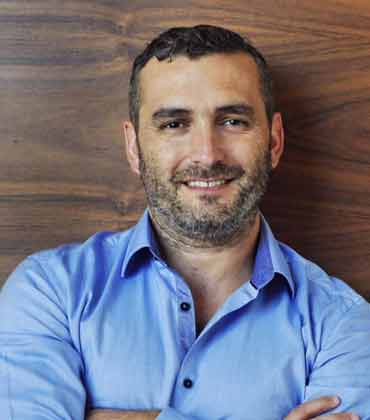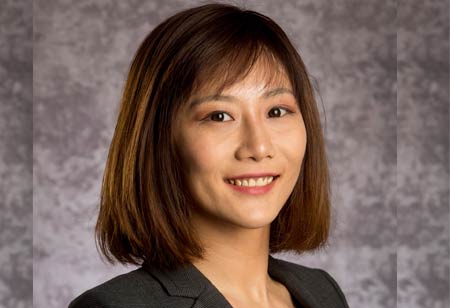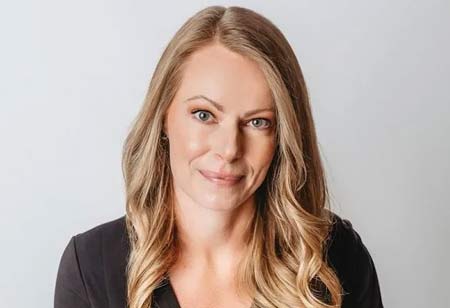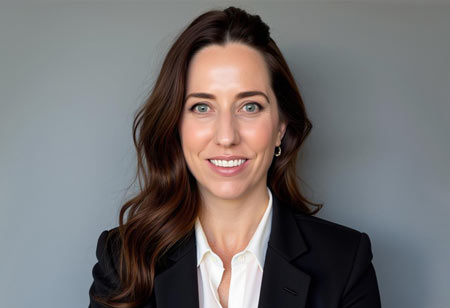THANK YOU FOR SUBSCRIBING
By Nicolas PELLENC, Head of Wine Purchasing and Procurement, Les Grands Chais de France
A Disruptive Time for the Wine Industry
By Enrique Morgan, Managing Director of The Americas, Accolade Wines
From Vine to Glass: Driving Success in the Wine Industry

Safeguarding Employees Better than Ever
Aaron J. Greer, Director of Human Resources, Cosentino’s Food Stores

 Aaron J. Greer, Director of Human Resources, Cosentino’s Food Stores
Aaron J. Greer, Director of Human Resources, Cosentino’s Food StoresWhen you say‘ occupational health’ you will often get mixed responses, but the vast majority will typically carry a negative opinion. It is my view that we as the HR professionals are to blame for this negative connotation. I’ve found that many of the best providers in health care are involved in, or specialize in occupational medicine. So, why the stigma? Unfortunately, many HR professionals view worker’s compensation claims as a sealed process that once the claim is made, very little needs to be done, and what happens is out of their control until the claim is closed. It is my opinion that the opposite is true. During the course of the claim, your interaction and guidance is more important than ever. We can’t expect to be occupational medicine experts when we hopefully only administer claims on an infrequent basis at most. With that said, what we can do is retain experts in the industry to help guide and assist us in the process. These experts should know the providers and know what they are good at and what they are not good at. Even if you are not in a directed care state, just having the liaison to assist a non-occ. med doctor in providing relevant information such as restrictions, job description, suggesting conservative alternatives, etc. can be a game-changer in the outcome for that employee.
Having a thorough, well-documented job analysis and post-offer employment test in place will ensure that the provider has both accurate facts regarding the job, as well as an accurate baseline of the employees’ abilities both pre- and post-injury
For our program, we’ve developed an early intervention process that is administered by a third-party nurse case management provider and has offered a dedicated 24/7 hotline for employee injuries. Within minutes of the injury, the employee is speaking to our representative that can not only triage the employee, but also ensure they get the right care, answer any questions regarding future care, and can even alleviate immediate concerns regarding how the process works. We feel that starting the process on a positive note, with a caring individual that represents the interest of the employees’ care, we will have a much more positive outcome in terms of care and employee engagement. Without a solid process in place, and when simply referring a claimant to a carrier assigned adjuster, you run the risk of costly delays in terms of employee dissatisfaction and unnecessary care. Many occ.-med providers are doing the best they can with the information given, especially in non-directed care states where the physician of choice may also be the employees’ PCP. In that scenario, the PCP may only have an understanding of the employee’s job duties based on what the employee is telling them, which will result in inaccurate restrictions/work status and thus an unhappy employee.
That is only a portion of the process, and we also feel that in order to achieve a positive outcome when utilizing an occ.-med provider, you must have the proper tools to give them so that they can achieve the best possible outcome for the injured employee and the employer. Having a thorough, well-documented job analysis and post-offer employment test in place will ensure that the provider has both accurate facts regarding the job, as well as an accurate baseline of the employees’ abilities both pre and post-injury. Putting it in place is not where it stops though, you must update as your jobs change; for example, many manufacturers change and adapt packaging over time, which may affect your lifting requirements, and without revaluation, you may not realize that a change has taken place. As an illustration of the impact that programs like this can have on an organization when they are implemented and given the thought and effort required, our program has seen an approximate cost reduction of 63% for annual WC spend from the implementation of the POET (Post Offer Employment Test) testing and Triage program in 2012 through 2019 (Factors in reserves and variance in population).
Overall, Be engaged in your process, be involved in the care, you don’t have to be a clinician to ensure the process is being handled as it should, you simply have to do what HR professionals are tasked with every day, advocating for your team and ensuring they get fair, consistent, and quality care that they deserve. Be a voice, and don’t be complacent with antiquated processes. If you’re not happy with your outcomes, ask yourself, why are we continuing to do things “because we’ve always done it that way”?
Read Also















